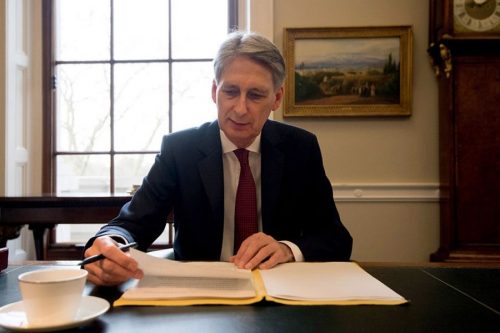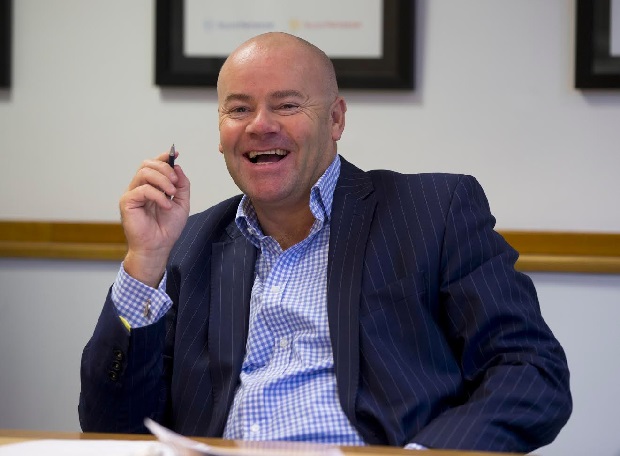Budget gets a cautious welcome from business leaders in the North West

Business leaders across the North West gave Philip Hammond’s budget a cautious welcome as the numbers behind the string of announcements began to emerge.
The Chancellor delivered the longest speech in a decade but the impact on the North West only became clearer after he sat down.
And with the shadow of Brexit still looming large there was a cautious response to the news that the age of austerity is coming to an end a decade on from the financial crisis.
In between the jokes about toilets and announcements on the NHS there was some good news for the region.
There was £37m to carry on developing a fast rail link between Liverpool and Leeds and there were also extra funds under the Transforming Cities Fund.
The cash will provide an extra £240m to the six metro mayors in England. West Midlands Combined Authority will receive £71.5m, Greater Manchester £69.5m, while Liverpool City Region will get £38.5m.
But many bosses and leaders are still deeply concerned about the impact of Brexit and the effect it is likely to have on the economy.

Jessica Bowles
Director of Strategy at property firm Bruntwood Jessica Bowles said: “While £37m to support the detailed proposals for Northern Powerhouse Rail is welcome, we would like to see a firm commitment over the next 12 months for this incredibly important project with would transform the economy of the North and better connect our cities, making them more globally competitive and attractive to investment.
“We also welcomes the funding announcement for 10 new university Enterprise Zones. While £5m is a relatively modest sum, it’s a step in the right direction.
“With Brexit around the corner, it was important that the Chancellor recognised that our future is as a high skill, knowledge-led economy.”
Bob Ward, who is in charge of EY in the region, also welcomed some of the announcements.

Bob Ward
He said: “The North didn’t get too much of a specific mention by the Chancellor in his Budget speech but looking into the detail of the Budget itself, commitment to the Northern Powerhouse and crucially, to the delivery of Northern Power Rail was most certainly reinforced.
“I’m heartened by several of the announcements, firstly that the Government plans to publish what it calls a “refreshed” Northern Powerhouse Strategy next year – that demonstrates renewed commitment to the importance of improving productivity across the region.
“Another little fillip to have been thrown our way is the £100,000 support to develop proposals for Eden Project North. That might be short change for the government but for the people in and around Morecambe, the regeneration benefits of such a project coming to fruition would be immeasurable.
“It demonstrates a recognition that growth and prosperity comes not just from major infrastructure and connecting towns to city centres but also by creating sustainable eco systems within our regions towns as well.
“It’s an issue that Hammond is clearly also grappling with when it comes to the question of what should be done with our High Streets – many regional towns have seen the make-up of their high streets change so much that there is clearly no going back and that is having considerable impact of local communities and economies.
“Overall, some good reinforcements in commitment to supporting the North – the key now is to get on and make it happen.”
Rebecca Durrant, tax partner at Crowe in Manchester said: “Employers will broadly welcome the measures announced by the chancellor.
.
“However, we have to consider this Budget against the context of what kind of deal is achieved for Brexit, and the Chancellor has confirmed he may upgrade the Spring Statement to a full Budget if required.
“There is a lot to support within in this Budget. The economy is growing and public sector borrowing figures have combined to give the Chancellor a lot more elbow room than he might have imagined even a year ago.”
Economists in the region were a little less enthusiastic and added a note of caution.
Dr Tony Syme, expert in macroeconomics and international finance at the University of Salford Business School, said: “This was supposed to be the budget to signal the end of austerity and the 5% increase in the personal tax allowance and 8% increase in the Higher Rate Threshold certainly exceed the rate of inflation, so there are reasons to be happy for 32 million taxpayers.
“But there are two reasons to wary. Philip Hammond said that a new Budget would need to be set if there was a no-deal Brexit.
“Yet, following the intervention of No. 10 which dismissed that suggestion, there was hardly a mention of Brexit.
“The elephant is still firmly in the room.”
“Second, the OBR’s forecast for economic growth to not exceed 1.6% over the next five years means that, for all today’s promises of £30.5 billion additional spending over that period, there is a serious problem of how to pay for this in the future. Unless the economy grows sufficiently, any increase in government funds needed to pay for these proposals will not materialise.”

Jo Sellick
Jo Sellick, managing director of Sellick Partnership, was less than impressed.
He said: “Philip Hammond has delivered his Autumn Budget with the bold headline claim that ‘austerity is coming to an end’.
“But, despite this being the longest Budget in a decade, there was very little content committing to this pledge.
“With puns and gaffs aplenty, Hammond managed to talk the talk and threw in some token gestures like raising the personal tax allowance to £12,500, pledging more money to the NHS and mental health funding and a digital service tax for the likes of Google and Amazon.
“Unfortunately, much like we have seen time and again with Brexit negotiations, the Budget was relatively meaningless and failed to provide the certainty that the UK economy so desperately needs.”

Mike Blackburn
Mike Blackburn, chair of the Institute of Directors North West, said: “All Halloween jokes aside, this Budget coming at such an unprecedented time has attempted to address some of the many concerns that businesses here in the North West are facing.
“Key details such as a reduction in small business’ contributions to the Apprenticeship Levy, a reduction in business rates, and the retention of Entrepreneurs Relief are welcome. They each go some way to alleviate the issues that our business leaders are voicing, but will they go far enough to continue driving our region’s productivity growth and economy?
“Brexit remains the key concern; feedback from our members in a recent survey show that directors’ confidence in the economy has fallen steadily over the past six months, with the UK’s uncertain trading status with the EU becoming the leading concern for the first time in 2018.
“We hope that the announcements by the Chancellor will encourage North West businesses to look beyond the current uncertainty surrounding Brexit and provide them with the confidence to continue their investment and commitment to the region.”







